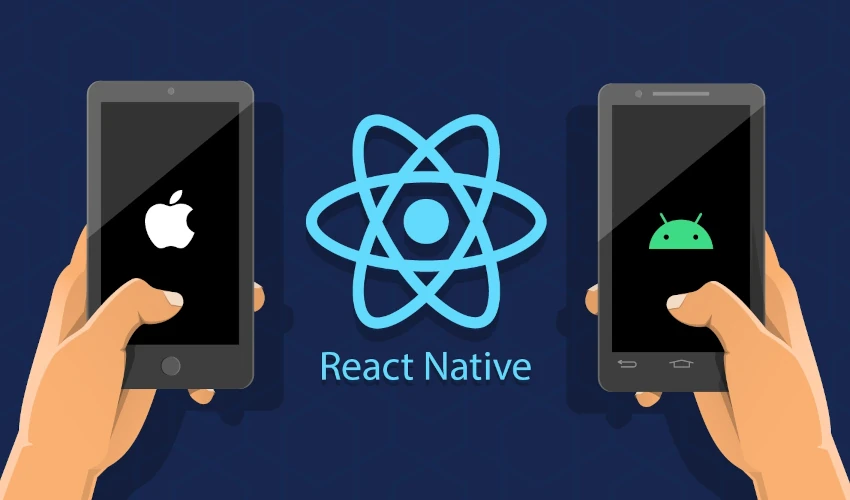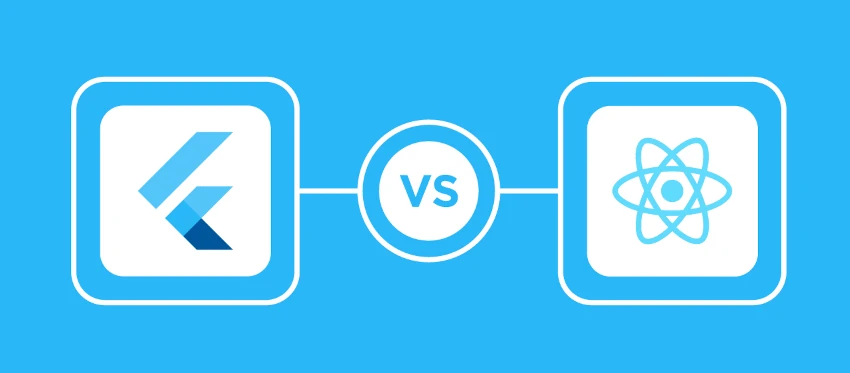We Help You Hire a React Native Developer From South America

Choosing the right nearshore company to hire a React Native Developer can be a time-consuming and frustrating process. For your role, you need a React Native cross-platform app developer who is smart, hardworking, and experienced.
We use a custom AI matching algorithm to find the right candidate for your development project. For a perfect match, we combine data analysis and personal interviews.
At Hire Cross Platform, we are committed to helping you hire the right React Native developer from the start. Our hiring process has been refined over several years and many fast-growing startups trust it. Our cross platform React Native app developers will add expert expertise to your team.
US Work Time
App Developers in our Brazil office work US hours so they can communicate with your existing team and gel well together.
Rates from South America
In our efforts to work with US companies, we have gathered a great group of talented and experienced react native developers from Brazil.
No Hidden Fees Or Taxes
Our team takes care of all the local employment taxes and employee benefits for you by charging you a flat monthly or hourly rate.
Only Tested Engineers
Our react native developers have passed our testing process, so you can be sure you are hiring a skilled professional.
Testimonials



What is React Native?

React Native is an open-source mobile application framework created by Facebook. It is used to develop applications for Android, iOS, Web and UWP by enabling developers to use React along with native platform capabilities. The main advantage of React Native is that it allows developers to write code in JavaScript and have that code run natively on different platforms, saving significant development time.
How React Native Works
React Native works by using the JavaScript core engine built into iOS and Android platforms. Developers write JavaScript code which React Native transforms into native view components. This means that a React Native app will use the same native UI building blocks as a traditional iOS or Android app, but these blocks are put together using JavaScript and React.
Benefits of Using React Native
React Native offers several benefits. It allows for faster development and lower costs, as developers can use the same code for both iOS and Android platforms. It also allows for live and hot reloading, meaning that developers can see the results of their changes in real time. Furthermore, because it’s based on JavaScript, it’s easy for web developers to transition to mobile development using React Native.
- Cross-platform: One codebase, multiple platforms.
- Cost-effective: Reduces development time and cost.
- Performance: Near-native app performance.
- UI-focused: Creates visually appealing interfaces.
- Hot reloading: Instant updates, faster debugging
- Community support: Large, active developer community.
- Extensibility: Easy integration with third-party plugins.
- Future-proof: Regular updates, maintained by Facebook.

Pedro Alves
React Native Developer
7+ Years of JavaScript Development 4+ Years of React Native. His previous experiences were with sports and media companies.

Luiz Ferreira
Senior React Native Developer
12+ Years of App Development 6+ Years of React Native. Luiz has a wealth of experience having worked at startups and established tech companies.

João Rodrigues
React Native Engineer
7+ Years of React.js 4+ Years of React Native. Loves to work on web projects and has great frontend skills.
What does a React Native Developer do?
A React Native developer is responsible for building performant mobile apps for both iOS and Android platforms using the React Native framework. They leverage the framework’s capabilities to write JavaScript code that is compiled into native code, enabling the apps to run on different platforms.
Designing and implement user interface components, ensuring that these components work seamlessly across different devices and screen sizes. They also work on integrating the mobile apps with backend services, often working alongside API developers.
Debugging is another crucial part of their job, as they need to ensure the apps they develop are free of bugs and errors. Furthermore, they often collaborate with UX/UI designers to create user-friendly and visually appealing mobile applications. They also stay updated with the latest industry trends and technologies to continuously improve the apps they develop.


Proven Partner in Cross Platform App Development
Our experience in developing cross-platform apps and websites has taught us the importance of a reliable and high-performing partner. To meet your needs, we offer premium, professional app development services. Don’t hesitate to contact us to start your development team!
How to hire a React Native Developer?
The three steps to hiring a React Native developer are as follows:
Send us your requirements by clicking on the box below. Make sure you describe the project and what you need in the description.
Receive resumes and conduct interviews with Cross Platform React Native App developers. Start shortlisting professionals once the proposals start coming in.
In the requirement description, you will determine the scope of work and the specific type of React Native developer needed to complete your project.
In order to get a detailed response, please include the following information:
Provide a list of all the deliverables you will need, from apps to platforms to Websites and APIs.
Size of the project: Your job post should indicate whether this is a small or large project.
Describe the background you require here if you need experience with certain industries, for instance, finance.
You may prefer hourly rates over monthly pricing.
How much does it cost to Hire a React Native Developer?
Costs vary based on expertise, experience, location, and market conditions.
As a result, experienced React Native developers will command higher fees and produce higher-quality results, work faster, and specialize in a wide variety of areas.
Beginners may be able to offer more competitive prices as they gain experience.
Our South American Cross Platform React Native App Developers have the following hourly rates:
Junior
Prices From- Works to U.S time zones
- No Recruitment Fees
- Vetted Skills & Experience
- Fulltime Working for you
- No Unreliable Freelancers
Intermediate
Prices From- Works to U.S time zones
- No Recruitment Fees
- Vetted Skills & Experience
- Fulltime Working for you
- No Unreliable Freelancers
Senior
Prices From- Works to U.S time zones
- No Recruitment Fees
- Vetted Skills & Experience
- Fulltime Working for you
- No Unreliable Freelancers
Join our team and hire a React Native Developer from South America!
Please note that prices for developers vary depending on specific skill and experience requirements.
Choose one based on your project’s details.
What does React Native code look like?
React Native code looks very similar to JavaScript, as it is essentially JavaScript code with JSX syntax and some specific React Native APIs. JSX is a syntax extension for JavaScript that allows you to write HTML-like code in your JavaScript code.
It uses the same design as React, letting you compose a rich mobile UI from declarative components. However, instead of using web components like ‘div’ or ‘span’, you would use React Native components like ‘View’ or ‘Text’.
Here’s a simple example of what a React Native component might look like:
import React from 'react';
import { View, Text, Button } from 'react-native';
const HelloWorld = () => {
const onPressHandler = () => {
alert('Hello, World!');
};
return (
<View>
<Text>Welcome to React Native!</Text>
<Button
onPress={onPressHandler}
title="Press me"
/>
</View>
);
};
export default HelloWorld;
In this example, we import the necessary components from ‘react-native’. We then define a function component called ‘HelloWorld’. Inside this component, we define a function ‘onPressHandler’ that will be called when the button is pressed. The ‘return’ statement contains the JSX that will be rendered: a view with a text and a button. When the button is pressed, an alert with the message ‘Hello, World!’ will be shown.
Questions to as a React Native Developer before you hire them.
Can you explain the difference between React and React Native?
This question helps you understand if the candidate knows the fundamental differences between React (a JavaScript library for building user interfaces, primarily for web applications) and React Native (a framework for building mobile applications). Their answer should touch on the different environments they’re used in (web vs. mobile), the different components they use, and how React Native compiles to native code.
How do you handle debugging in a React Native application?
Debugging is a crucial part of any developer’s job. This question will give you insight into the candidate’s problem-solving skills and their familiarity with the tools and techniques for debugging in React Native. They might mention using the built-in React Native debugger, using console.log statements, or using third-party tools like Reactotron.

Can you describe a project where you had to optimize the performance of a React Native app?
Performance optimization is key in mobile app development to ensure a smooth user experience. This question will help you understand the candidate’s experience and approach in improving the performance of a React Native app. They might discuss strategies like optimizing render methods, using PureComponent or shouldComponentUpdate, or reducing the size of the JavaScript bundle.

Do you enjoy working in a Cross Platform App development team? or prefer to develop alone?
This question doesn’t have a right or wrong answer, as React Native engineers can work on different sizes of projects. Hiring someone who is hardworking and capable of working independently may be important to you for a smaller app. For a larger project with multiple developers, you may want someone who works well with other people.
How do you ensure that a React Native app works consistently across different devices and platforms?
One of the challenges of mobile app development is ensuring that the app works well on a variety of devices and platforms. This question will help you gauge the candidate’s understanding of the nuances of different platforms (iOS and Android) and their approach to testing and quality assurance. They might discuss manual testing on different devices, using emulators/simulators, or using testing platforms like BrowserStack or Sauce Labs.
React Native History

React Native is a popular framework for building mobile applications, but its journey to where it is today has been marked by several key milestones. It was born out of Facebook’s need to bring the advantages of web development – such as quick iterations and a single team developing for multiple platforms – to the mobile space.
Birth of React Native
React Native was first introduced by Facebook in 2015 during the React.js conference. The idea was to bring the power of React, a popular JavaScript library for building user interfaces, to mobile development. Facebook had already been using React in production for their website, and they wanted to leverage the same benefits for their mobile apps.
Adoption and Growth
After its introduction, React Native quickly gained popularity. Developers embraced the framework because it allowed them to use their existing JavaScript knowledge to build mobile apps. Companies like Airbnb, Uber, and Skype started using React Native for their mobile applications. The open-source community also embraced the framework, contributing to its growth and development.
Today’s React Native
Today, React Native is maintained by Facebook, along with a vibrant community of developers. It’s used by many companies, big and small, for their mobile applications. Facebook continues to invest in React Native, regularly releasing updates and new features. The framework has proven to be a game-changer in mobile app development, allowing developers to build high-quality, cross-platform apps with JavaScript.
Should you hire a react native developer or flutter developer to create you App?

Choosing between hiring a React Native developer or a Flutter developer for your app development needs is a decision that depends on various factors. Both React Native and Flutter are popular frameworks for building cross-platform mobile applications, but they have different strengths and weaknesses. Here are some considerations to help you make an informed decision.
Availability and Community Support
React Native, being older, has a larger community and more available developers compared to Flutter. If you’re looking for a developer with extensive experience and community resources, React Native might be the better choice. However, Flutter is growing rapidly and its community is becoming more robust.
Performance and User Experience
Flutter is known for its high performance and smooth, consistent user experience across platforms. It compiles directly to native machine code, which can lead to better performance compared to React Native. If performance is a critical factor for your app, you might lean towards hiring a Flutter developer.
Future-Proofing and Flexibility
React Native, backed by Facebook, has been around for a while and is used by many large companies, suggesting a certain level of stability and future-proofing. On the other hand, Flutter, backed by Google, is gaining traction and offers a more flexible UI design, which might be beneficial if you want your app to have a unique look and feel.
Depends on Your Specific Needs
The decision between hiring a React Native or Flutter developer depends on your specific needs, the complexity of your project, and the long-term plans for your app. It’s recommended to discuss your project with developers experienced in both frameworks before making a decision.
Why hire a React Native from South America with us?
Our company provides experienced React Native developers at affordable prices as a leading Nearshore Technology Solutions provider. With high-performance, scalable solutions, we aim to provide the best cross-platform app development service to our clients.
With our App development experience and project management expertise, we accelerate or rescue cross-platform app development projects. It is our goal to create lasting value throughout the development of your project and beyond.
We’ve matched hundreds of app developers with great teams in more than 100 startups and tech companies around the world.
You will find that our Cross Platform React Native App developers become devoted members of your team, fully integrating into your business.
Every React Native developer we supply goes through a vetting process to verify their communication abilities, remote work readiness, and technical skills (not just for React Native and JavaScript knowledge but for a breadth of knowledge in software and app development as well).
Lower Rates
It is common for companies to outsource in order to reduce costs. Using software engineers from outside of the U.S. is more cost-effective. Additionally, you will see a significant reduction in overall employment costs. Taxes, benefits, redundancy liabilities, and office space won’t be an issue.
Grow Fast
An industry can gain a competitive advantage by expanding and downsizing quickly. When you hire Brazilian React Native developers from us, you can scale up or down as you need.
An Experienced Partner
By outsourcing Cross Platform React Native App development, you are entrusting your project to an organization with extensive experience helping businesses create cross platform apps. With our team on board, you can rest assured that your project will be completed on time and on budget.
What do developers use React Native to create?
Developers use React Native to create cross-platform mobile applications. This means that with a single codebase, they can build apps that run smoothly on both Android and iOS devices.
React Native is particularly popular for its efficiency and cost-effectiveness, as it allows developers to leverage their existing JavaScript knowledge without needing to write separate code in Swift for iOS or Java for Android. It’s not just limited to mobile apps, though. With extensions like React Native for Web, developers can also use React Native to build web applications. Some of the world’s most popular apps, including Facebook,
Instagram, and Pinterest, have been built using React Native. From social media platforms to e-commerce apps, news aggregators, and productivity tools, React Native is a versatile framework that can be used to create a wide range of applications.

- E-commerce apps for online shopping
- Social media platforms for networking.
- News aggregators for current affairs.
- Productivity tools for task management.
- Health and fitness trackers.
- Educational apps for learning.
How do we code test a React Native Developer before hiring them?

To code test a React Native developer before hiring them, we use a combination of methods. Starting with a technical interview where we ask them to explain concepts and solve problems related to React Native. This gives us an idea of their theoretical knowledge. Then, we provide them with a practical coding challenge. Usually, this is a small project app with specific challenges to solve.
We ask them to write the code for this challenge in React Native and explain their thought process. This tests their practical skills, problem-solving abilities, and communication. We also ask them to review a piece of React Native code and suggest improvements. This tests their code understanding and optimization skills.
Finally, we use pair programming or a live coding session to see how they code in real-time. This also gives us an insight into their working style and how they handle pressure.
How do you manage React Native Developers after you hire them?
After hiring React Native developers, effective management is crucial to ensure productivity, maintain motivation, and deliver high-quality applications. Here are some strategies to manage your React Native developers effectively.
Match your business goals with your development objectives by defining key results
Clear Communication
Ensure that there is clear and open communication with your developers. Regularly update them about project goals, deadlines, and changes. Encourage them to share their ideas, challenges, and progress.
Provide Necessary Tools and Resources
Equip your developers with the necessary tools and resources to do their job effectively. This includes software, hardware, access to online resources, and training materials.

Regular Feedback and Recognition
Provide regular feedback to your developers about their performance. Recognize and appreciate their hard work and achievements. Constructive feedback helps them improve, while recognition boosts their motivation.

Encourage Continuous Learning
The tech industry, including React Native, is always evolving. Encourage your developers to continuously learn and stay updated with the latest trends, techniques, and best practices in React Native development. This could be through training, workshops, or conferences.
How long do React Native Developers remain in jobs?
A React Native Developer in the US stays in the job between 1.8 and 3.2 years, with larger companies tending to keep their workers for longer. Brazilians spend on average between 2.4 and 4.1 years in the job, with those in Sao Paulo spending the least time. In the past, it wasn’t unusual for someone to spend their entire career at one company.
React Native Developers who are experienced with Cross Platform App development may switch jobs relatively quickly, seeking new opportunities and more money, since such longevity is no longer common. With a low unemployment rate, there is a desperate need for app developers with cross platform skills, and other critical skills in this market. We provide perks to attract and retain top talent by communicating with them.

Frequently Asked Questions (FAQs)
Our services are trusted by hundreds of startups and tech companies worldwide, and we have matched hundreds of skilled React Native developers to great development teams in the US, UK and Canada. Every React Native app developer in our network goes through a vetting process to verify their communication abilities, remote work readiness, and technical skills, both for depth in Cross Platform app development and breadth across the greater programming domain.
The job description of a Cross Platform React Native Developer should include the following:
Developing, implementing, and managing apps
New app testing and evaluation
Enhancing existing apps by identifying areas for improvement
Coding in an efficient manner
Analyzing operational feasibility
Establishing procedures for quality assurance
Implementing software tools, processes, and metrics
Upgrades and maintenance of existing systems
Assisting other developers, UX designers, and business analysts with their tasks
It’s not enough to just ship features; your software needs to help your business succeed. In order to better understand what you’re building, for whom, and why, we’ll begin our collaboration with a discovery process.
Our headquarters are in Sao Paulo, Brazil. We have clients from all over the world. We have successfully collaborated with companies in North America, Asia, the Middle East, and Europe. A good understanding of each client and excellent English communication skills help the process run smoothly.
We can work with you to scale the team down as needed and make sure you have the correct skills required for each project phase.
All Types! You can hire a Cross Platform React Native Developer on a full-time, part-time, or contract-to-hire basis at Hire Cross Platform Developer. You can find a React Native developer in a time zone that suits your needs thanks to our global network of skilled software engineers. App developers who work remotely for us are all mid- and senior-level professionals, ready to code right away.

